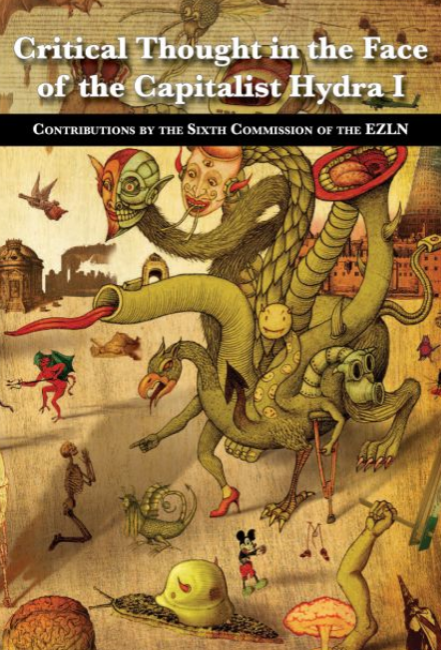
By Raul Zibechi
One of the main characteristics of critical thought has been its uneasiness, its capacity to disturb the common places, to question established knowledge and shake off the drowsiness of inertia. It was always thinking that went against the tide, rebellious and insubordinate.
Marx dedicated himself to turning Hegel’s theoretical legacy upside down. Lenin was determined to disobey Marx, who assured that the revolution would win in the most industrially advanced countries. Mao and the Vietnamese rejected the urban insurrections for the prolonged peasant war. Fidel and Che were heretics with respect to the communist parties that dominated the stage of the left.
The much-praised Walter Benjamin was relentless with the idea of progress and, more recently, environmentalists question development, while feminists reject vertical organizations and patriarchal warlords.
The EZLN, for its part, reaps the successes and avoids the errors of previous revolutions, consequently setting aside war in order to continue transforming the world and defending (by all means) the territories where the people rule by exercising their autonomy.
In what situation is critical thought in the midst of a pandemic? What should be the central points of its analysis? Who is formulating it in this period?
I will try to answer in a few lines.
The first is that established thought, articulated by academia, parties and intellectual authorities, is in the midst of decline, a process entangled with the ongoing civilizational and systemic crisis. Perhaps for being part of a modern, urban, western colonial and patriarchal civilization. That is, for having surrendered to capitalism.
The bulk of the so-called intellectuals dedicate themselves to justifying the errors and horrors of the parties of the electoral left, rather than criticizing them, with the sad argument that they don’t want to favor the right. If criticizing the left were that, Marx and Lenin would have been dismissed as right-wingers, as they dedicated some of their best works to questioning their comrades-in-arms.
The second is that critical thought should remove the veil from the structural and long-term causes of the situation we are living in. Not entertaining audiences with fallacious arguments. To be able to link the pandemic with the neoliberal extractive model, the brutal financial speculations, and the 4th world war against the people, instead of attributing the failures or the successes in combating the virus to this or that government. This is what I call entertaining instead of analyzing.
Moreover, critical thinking should not be satisfied with diagnoses. We are overwhelmed by judgements of the most diverse kind, many of them contradictory. Years ago, peak oil was mentioned as the vault key to the end of capitalist civilization. Much earlier, it was assured that the system would fall victim to inexorable economic laws.
Every day, there are diagnostics that place the limits of the system on the environment, the depletion of resources, and a long list of supposed objective causes that do nothing more than elude social conflict as the only way to put a stop to and defeat capitalism. Benjamin already said it; if the system were going to fall for objective reasons, the struggle wouldn’t make the least bit of sense.
The third seems to me the most important. Until today, those in charge of expressing critical thinking were academic, upper-middle class white men. Of course the kinds of ideas that they shared were Eurocentric, patriarchal, and colonial, although it should be acknowledged that they weren’t all wrong because of this. We just have to pass them through the sieve of the people, the women and the children.
Now those who are issuing critical thought are no longer individuals, but peoples, collectives, communities, organizations, and movements. Who are the theoretical representatives of the Mapuche people or the indigenous peoples of the Colombian Cauca region? Who embodies the ideas of the feminist and the anti-patriarchal women’s movements?
There are still those who believe that Zapatista thinking was a work of subcomandante Marcos and now subcomandante Galeano. They will never accept that they are thoughts born of collective experience that are communicated by elected spokespeople below. They will never accept that the current spokesperson is subcomandante Moíses.
This is the reality of current critical thinking. Detours above, creativity below. Like life itself. There is nothing essentialist about this. Living knowledge arises among those who struggle. Only those who are changing the world can know it in depth, among other things because they’re is going through life that way, because they can’t have any illusions about those above, much less the political colors and discourse that they broadcast.
Benjamin said it with absolute clarity: The subject of historical knowledge is the oppressed class itself, when it fights.
This article was originally published in Spanish in La Jornada on December 4th, 2020. https://www.jornada.com.mx/2020/12/04/opinion/026a1pol This English interpretation has been re-published by Schools for Chiapas.
